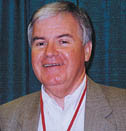
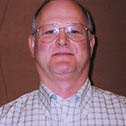
"We are projecting a slight increase," said Don Maloney, president of Coburn Supply Co. (Beaumont, Texas). "Business is up from last year, but last year at this time was not a good indicator. It looks good for the rest of the year, assuming interest rates remain manageable. But until the first shovel is dug in the dirt and thrown, you never know for sure, so we are cautiously optimistic."
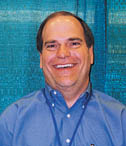
Tom Knittle, president of Midland Winnelson (Midland, Texas) had the most aggressive projection. "We expect at least a 30% increase in the coming year," he said.
The outlook from manufacturers ranged from "business is booming" to "the turnaround will be slow and gradual."
"We're looking at 5% to 7% growth this year," said Steve Adams, vice president/ wholesale & OEM sales at Dearborn Brass.
"Business is fairly good, but there seems to be a continued uncertainty from all segments, from distributors to contractors to engineers," said Brian Suriner, national sales manager at McGuire Manufacturing Co. "A year ago wholesalers might have been buying three to four months of inventory to put on the shelf, buying for projected usage. This year they are just buying for usage."
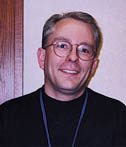
Don Maloney, president of Coburn Supply Co. (Beaumont, Texas): "Training and technology. Regarding technology, it's about getting more manufacturers in the loop, using EDI and VMI. In terms of training our employees, we are giving people within our company the responsibility to make things happen."
Calvin Grout, president, Winnelson Southeast (Dayton, Ohio): "Getting good people. We are using internships and recruiting and training to encourage employee growth."
Marty Kamerbeek, general manager at Moore Supply Co. (Houston, Texas): "Finding motivated employees. We have had to hire and train people from outside of our industry. If you give me an individual with a positive attitude, motivated to succeed, the training part is easy."
Tom Knittle, president of Midland Winnelson (Midland, Texas): "Customer loyalty. We are working on developing better interpersonal relations with our customers, getting to know them on a personal basis, not just in the workplace. Once they get to know you, you develop a friendship."
Warren Thompson, controller at J&B Supply (Fort Smith, Ark.): "Our people adapting to the changes in technology that we need and government regulation. People want to do things the old way, but counter staff and outside salespeople have to work smarter and be smarter. We brought four managers to this show. We hope it will help."
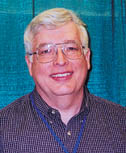
Robert Carnevale, president/CEO, Bradford White Corp.: "Meeting government standards for environmental safety and efficiency over the next several years. In preparation, we are beefing up our engineering department and making sizable capital investments in equipment so that we will be able to design the products to meet these new standards."
Jim Margoni, vice president/sales & marketing, A.O. Smith Water Products Co.: "Keeping our people motivated and trained. We are focusing on business and eliminating waste."
Jerry Arrowood, national sales manager, Plastic Oddities: "Being competitive. We address this by sticking to the basics, such as customer service."
Seth S.Guterman, vice president/ sales & marketing, American Valve: "Figuring out how we will manage our growth as we move into new products, new areas, new markets. A year ago we started a relationship for international sales. That immediately increased our global sales by a tremendous factor. Keeping up with that growth is a challenge. We are trying to balance the need to service existing customers and the need to seize upon new opportunities."
Steve Adams, vice president/wholesale & OEM sales, Dearborn Brass: "Foreign competition for the type of product we make. The Chinese are coming into this country very aggressively. We shut down plants in Texas and one in Kentucky and moved to Nogales, Mexico, just south of Tucson. That saved us some money. Several manufacturers are moving south for the same reason."
Charles Porter, vice president/sales, Peerless Pottery: "Imported products coming into the United States. Our industry is facing competition worldwide now. This is our 100th year of doing business. I've seen more changes in the last 10 years than I saw in nearly 25 years with the company. We are trying to mechanize, improve production, invest in equipment that will cut labor costs to make us more competitive."
John Raleigh, executive vice president, Central Brass: "Consolidation of the wholesale industry makes business more challenging for us as a smaller manufacturer. When we were working with more independents, it was easier to get a better audience. When the large companies take over, it's harder to get to the buying influence. Also, there is greater turnover, so people have to be re-educated. Imports are also an issue.With the advent of the computer, a lot of people look at numbers only and don't necessarily look at what is behind the numbers."
Jessy Grasso, sales manager, Eclipse: "Perception of the economy being weak, waiting for the economy to come back, polonging delays in decisions. The economy is coming back."
Brian Suriner, national sales manager, McGuire Manufacturing Co.: "Competition. We are a niche player and compete in a small segment. When things slow down, other players enter. For example, a residential faucet manufacturer may try to get into commercial faucets when the residential market slows down. It is a struggle to retain earnings and make money. You have to be faster, quicker, smarter, and sustain a competitive advantage by knowing exactly what is going on in the market day by day."
William Blaine, vice president/sales, Elkay Manufacturing: "If business remains as strong as it is, our biggest problem will be finding people. We have factories in Illinois, North Carolina and Utah. It will be a challenge to get qualified people to do the job. We can train people for manufacturing jobs, but we look for some experience for customer service positions."
Al Huneycutt, vice president marketing and sales, Halsey Taylor: "Complying with government regulations that vary from state to state. PMI, ASA and other organizations are working to get one code for this entire country."
Tony Michels, sales manager - western region, Alsons Corp.: "Staying on top of introductions of new products and finishes. Keeping our line fresh and new with updated finishes is just as important as new products."
Don Webb, president, Prelude Systems: "Keeping up with changing technology. We are introducing a new generation of application software specifically for the plumbing industry. We will announce a new product in the electronic industry at the NAD show in May. Our plumbing offering will be announced after that."
Scott Knapp, central regional sales manager, A.Y. McDonald Mfg. Co.: "The way the marketplace continues to change with new faces, new players, consolidation. Our company is driven on service. We've been in business 146 years. You have to adapt to changes. Years ago our freight policy was based on weight. Then we switched to list price to meet freight requirements. In response to today's needs, with people pressed for time and looking at the bottom line, we moved to a net freight policy effective March 1. This meant a complete reorganization of our computers, but we were adapting to our customers' needs."
